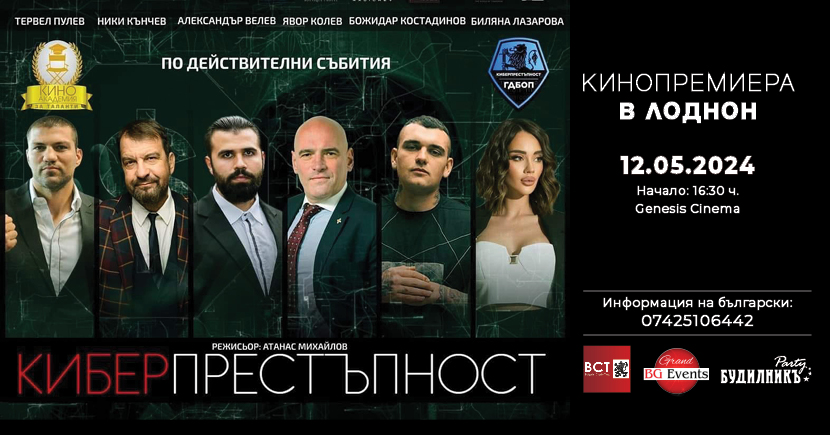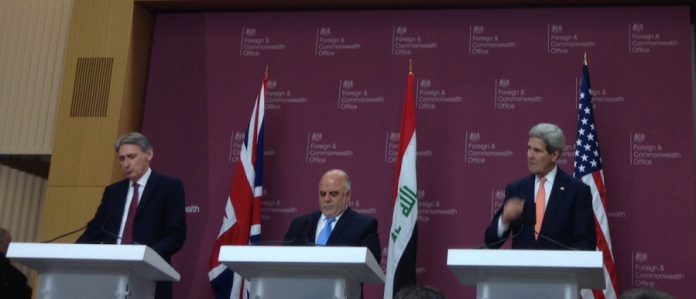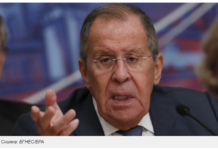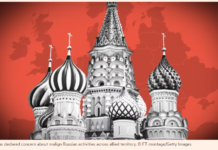By Rumyana Vakarelska
US Secretary of State John Kerry and Philip Hammond, the UK’s Foreign Secretary, last week paid notable visits to Bulgaria and other EU capitals.
Mr Kerry’s visit to Sofia raised particularly important questions regarding Bulgaria’s position in the EU and NATO, due to the country’s geographical position in the middle of the world’s worst conflict zones, namely Syria and the Russian/Ukrainian conflict, which have both profoundly affected Europe and the wider international community.
Some of these questions got answers a week later in London, when the international diplomats, together with Iraqi PM Haider al-Abadi and the members of a coalition of 21 states, met in London to recap progress over the counter-terrorism actions they have undertaken in the last five months.
“Part of our multi-layered approach to tackle terrorism is in making sure that individuals engaged with IS do not transit through countries like Bulgaria and Romania, as they protect part of the EU’s external border’, Hammond said at a joint press conference in London. He praised Turkey for making big efforts in this direction, stopping some of the refugee influx coming from Syria and other states in the region along with IS fighters, but he did not mention that Bulgaria’s border police have already identified an accomplice to the Paris-terrorist attacks earlier in the month.
Kerry’s visit to London also clarified some of the answers to the questions which have risen from his trip to Sofia, such as the timing and the reasons behind Kerry’s and Hammond’s separate consecutive trips to Bulgaria last week. Those followed two earlier meetings in Brussels last year in September 2014, when 60 countries came together, according to Kerry, and one just this week for some of the coalition members. These facts confirm the arguments given by the Bulgarian Ambassador to the US, Elena Poptodorova, before the Bulgarian press and similarly by Milen Mitov, the Bulgarian Foreign Minister, that John Kerry came to Sofia as a result of earlier official invitations.
Both visits happened a week after Paris terrorist attacks and two weeks after Russia declared its withdrawal from South Stream, so the reasons behind the timing may clear some suggestions of a sudden change in foreign interests swinging from Russia to US, but as facts prove the truth is different. Eight EU countries and notably Bulgaria participated in project South Stream, while if the project was to go ahead ahead, Bulgaria could have served as a gas distribution hub for South Eastern Europe and across West to end in Austria. A new project named by Russia the Turkish Stream may now partially replace the scope of South Stream, but in either case much diplomatic effort will be needed for any of the new regional Interconnectors to be funded and built, although they may suit Bulgarian energy security interest better than the much spoken about South Stream project Bulgaria has never particularly been keen on.
In London, new decisions have been taken about the coalition’s strategy against IS over the next five months and what homework the countries involved should do to prepare for the next steps. The London meeting also recognised that although half of IS leaders were killed during the past anti-terrorist campaign in Syria and across the Middle East region, in some cases a reversal of military operations took place.
Iraqi PM Haider al-Abadi told the London press conference that he will need more support in the provision of new arms and military training and shared fears about the threat of underfunding the military operations in his country as the oil price continues to fall, reaching USD 50 per barrel with projections for this trend to continue.
As well as the US, UK and Iraq, the talks in London included Australia, Belgium, Canada, Denmark, France, Germany, Italy, the Netherlands, Norway and Spain. Gulf coalition partners Bahrain, Egypt, Jordan, Kuwait, Qatar, Saudi Arabia, Turkey and the UAE also took part, according to the BBC.
‘Each country decides how it engages with the coalition’, John Kerry said, which also underpins the wider scope of conversations in Sofia last week between Kerry and the Bulgarian PM Boiko Borissov, as well as the Bulgarian President Rossen Plevneliev and the country’s foreign and defence ministers.
‘We are impressed by Bulgaria’s new plans, as we see a team that wants to move on’, said John Kerry in Bulgaria last week. ‘We see energy diversity and Bulgaria’s sovereignty as the country’s key tasks, as it is a good member of the EU and NATO and we want Bulgarian citizens to benefit from that by attracting new investment’.
Kerry clarified that the ‘US is going to support Bulgaria in its efforts to achieve energy, economic and political security’, although the use of the word sovereignty has been the subject of a debate in the Bulgarian press and society ever since.
‘We need judiciary reform and a continuation of the fight against corruption, which undermines national security,’ said Georgi Aneglov, an economist at the Open Society, ahead of the press conference with Kerry and Borissov last week on BNT.
To defend its energy security, also part of Bulgaria’s sovereignty, the US may support Bulgaria’s efforts in building a gas Interconnector with Greece that may be potentially funded by the EU, as well as the Interconnector with Turkey, for which wider political lobbying may be needed.
Borissov said that he asked if Westinghouse (the US nuclear fuel and nuclear power technology company that has bid to build the Kozluduy 7 reactor), can act as an investor, potentially using US state subsidies through Exim Bank, rather than using part of the Bulgarian budget to guarantee the order.
Borissov said that he supports the creation of four US-Bulgarian working groups decided upon at the end of Kerry’s visit, one of which is will focus on Bulgaria’s energy security. The remaining three joint working groups will concentrate on collective security and the optimisation of the Bulgarian military forces through new equipment and training, the rule of law in Bulgaria and new bi-lateral educational opportunities.
‘Unlike other EU countries such as Romania and the Baltic countries, Bulgaria has not asked for enforcement of NATO’s presence on its territory’, Vessela Cherneva, Head of Programmes at the European Council on Foreign Policy (ECFP) think-tank, told BNT. ‘Fixing our problems in the judiciary system remains a coherent part of the country’s sovereignty’, she said.
In the last week, Bulgaria pushed forward with ordering the construction of 82 km of wall that remains to close the border with Turkey without the delays that the public procurement for such projects normally incurs, acting on the decisions taken during the visits. As for getting EU finance to cope with the Syrian refugees that have already crossed the Bulgarian border, Bulgaria will act together with Italy and Greece who have also been affected by a wave of newcomers they found difficult to cope with.
Bulgarians will not for the time-being get visa free travel status in the US, as to achieve this a US partner country must hold a low percentage of rejected visas, while the current number for Bulgaria’s citizens is 15,2 pc. However, separately, Bulgarian citizens with dual UK citizenship have a right to visit the US visa-free, as all British citizens have access to highly simplified visa travel to the US, provided they stay in the country for less than three months.
Copyright 2015@Rumy Vakarelska of Team New Europe, an editorial and public affairs consultancy. May sponsors and advertisers, who wish to reach out our English language readership contact the author in writing by email: rumy.vakarelska@gmail.com





















